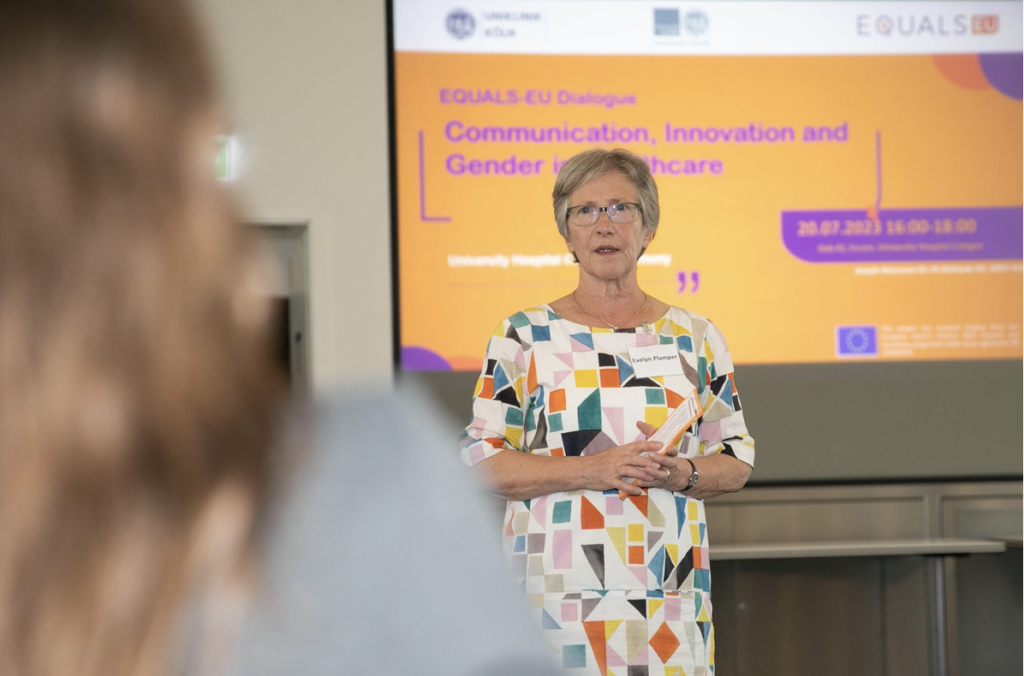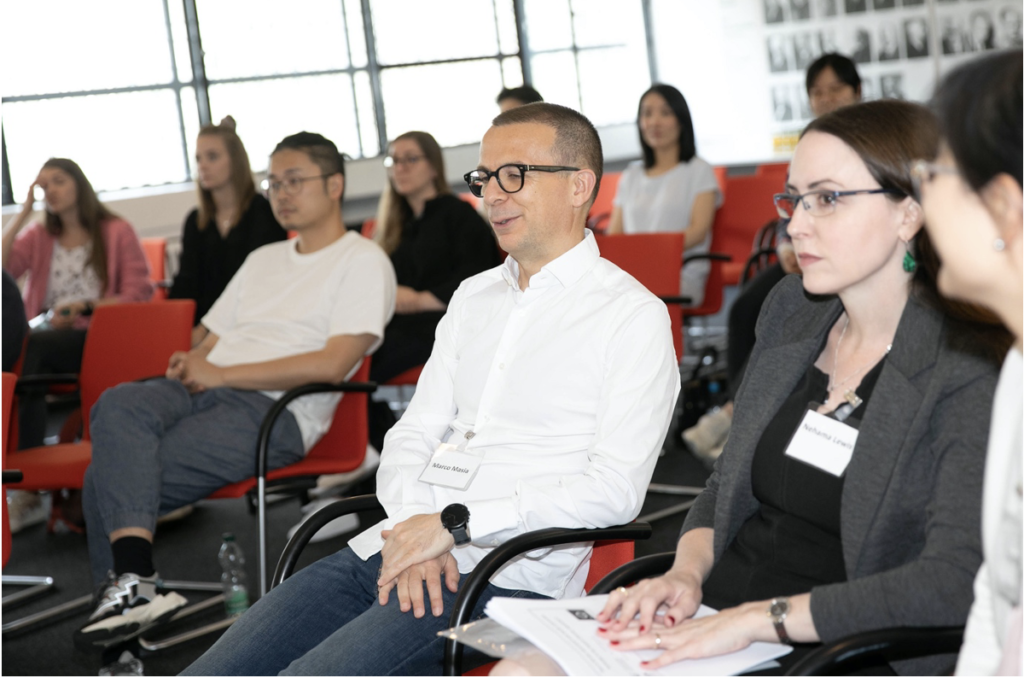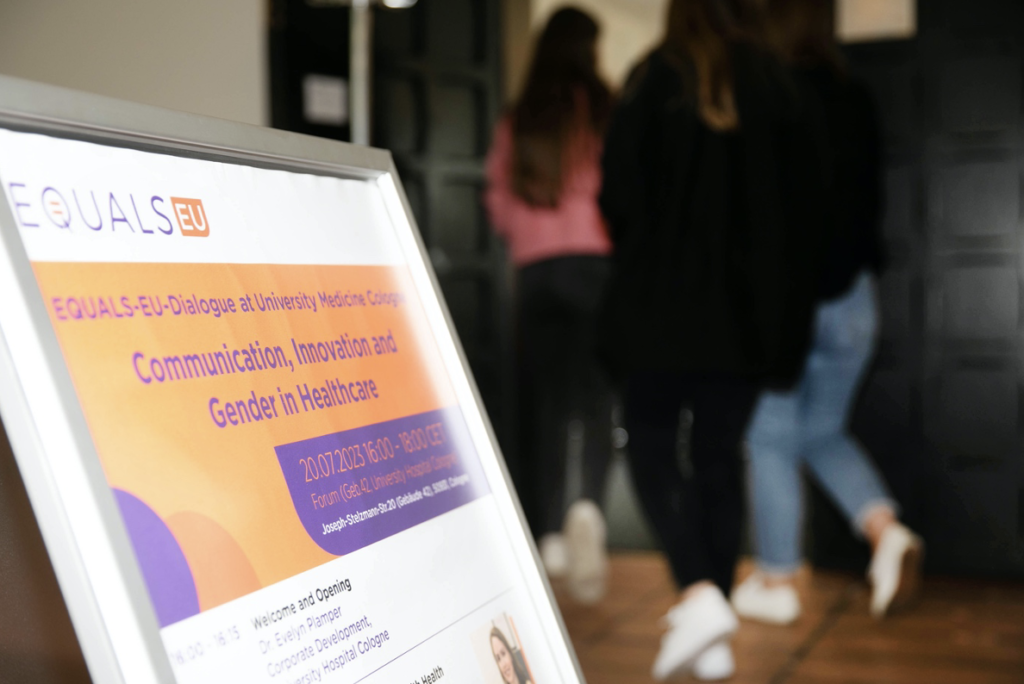On 20 July 2023, Dr. Yue Zhao, Head of the Surgical Oncology Research Lab at Department of General, Visceral, Tumour and Transplantation Surgery, and Dr. Evelyn Plamper, Medical Doctor, Health Scientist and Head of Corporate Development, welcomed 2 project partners for the EQUALS-EU Dissemination event at the University Hospital Cologne. The event was well attended with a diverse audience that included people at different career stages, from different fields of study, with a shared interest in the topic.

The first speaker, Prof. Dr. Nehama Lewis is an Associate Professor in the Department of Communication, and Vice-Dean of the Faculty of Social Sciences at the University of Haifa, Israel. Her research focuses on health communication, a multidisciplinary field of study and practice that is based on communication evidence, strategy, theory, and creativity to promote behaviors, policies, and practices that advance the health and well-being of people and populations. Prof. Lewis represents the University of Haifa as a beneficiary in EQUALS-EU, and her role at the event was to collaborate on dissemination of research on gender equity in healthcare, together with the EQUALS-EU partners at the University Hospital of Cologne.
In her talk, Prof. Lewis gave a great overview on patient-clinician interaction research. It is widely acknowledged that clinicians and patients may reach better outcomes making decisions about treatment by evaluating patients’ beliefs, needs, and preferences and considering evidence‐based clinical information about treatment options. This approach should be basis for shared decision making (SDM). Lack of time may be one obstacle counteracting SDM. Factors such as age, gender, and education are among the most relevant predictors for patients’ preferences and involvement in medical decision‐making. The audience discussed the main causes of health inequity: lack of inclusivity (female, intersex, and trans health) in medical research which leads to knowledge gaps, delayed diagnoses, women’s symptoms not been taken seriously enough. It is highlighted that it is important to improve health equity by rising numbers of women in leadership positions in academia and train medical professionals to identify and reduce gender bias in healthcare.

The second speaker, Dr. Marco Masia has his academic background in theoretical chemistry (MSc) and physics (PHD). He is an entrepreneur and technology transfer manager at the University of Vienna and serves as an Academic Chair for Innovation of the European University Initiative Alliance Circle-U. Dr. Masia has founded two start-up companies, managing a non-profit organization and training researchers to gain business skills and reach entrepreneurial capacity.
In his talk, Dr. Masia highlighted that gender-based bias should be of great concern regarding innovation. The development of knowledge, technology, product, and business models, is hindered by the fact that the entire value chain promoting, funding, and supporting innovation driven entrepreneurship is male dominated. He focused his presentation on Europe, showing key performance indicators about the current situation of female start-ups (including mixed teams) versus male only start-ups, with particular emphasis venture capitals investments. He also showed that women outperform men in most entrepreneurial competencies, and this is reflected in higher return-on-investment (up to 250%) for female funded start-ups. Conclusions from Dr Masia’s talk is that, to overcome the gender divide in innovation, we should push for a higher representativity of women in (private and public) funding boards, more training about unconscious bias both for men and women sitting in such boards, and increase the social capital of women. He also added that we should aspire to a future with most start-up teams being mixed; different approaches to business, different set of values and priorities, and different set of competencies will make the teams stronger, sounder, and more successful.

During the EQUALS-EU dissemination event in Cologne, the local partners underscored the paramount significance of gender equality within the rapidly evolving digital age. Both experts shared their expertise and insights. In the concluding discussion, it became evident that the strides made in bridging the gender gap are intricately intertwined with the advancement of technology, innovation, and entrepreneurship. The discourse highlighted how embracing inclusivity and diversity not only bolsters the fields of health communication and entrepreneurial endeavors but also fuels a broader societal transformation. By nurturing a balanced and equitable digital landscape, where women’s leadership, representation, and participation are actively fostered, we pave the way for a more prosperous and just future for all. This commitment to gender equality resonates as a pivotal cornerstone in propelling both digital progress and societal well-being, resonating far beyond the confines of this enlightening dialogue.
Overall, the event was a great platform for discussion related to gender equity in healthcare and in entrepreneurship, and helped disseminate the unique expertise of the EQUALS-EU project partners to a diverse public audience.
